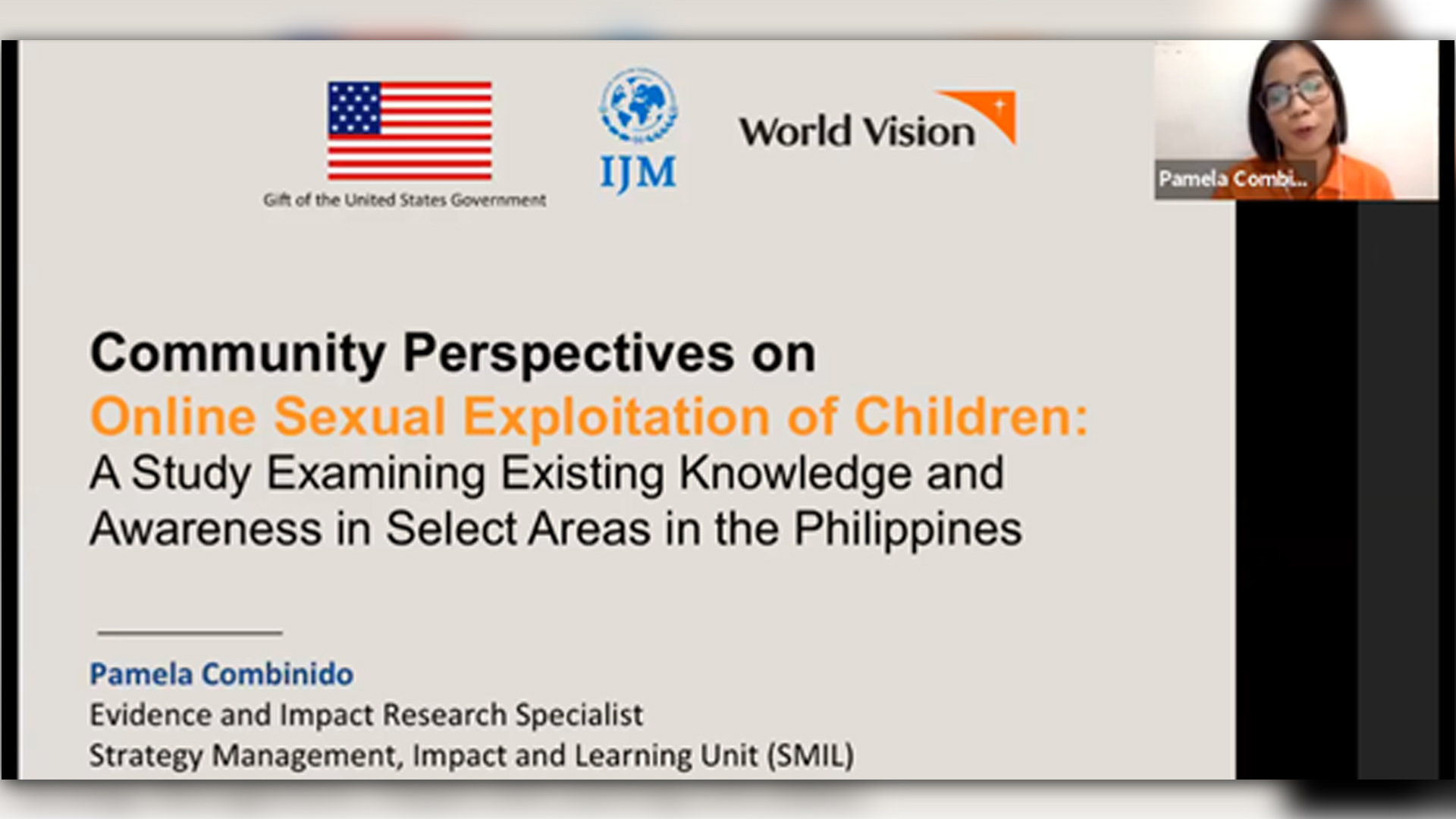As World Vision Development Foundation commemorates the World Day Against Trafficking in Persons (WDAT), it urges government and duty-bearers to continue its efforts in strengthening the capacity of anti-trafficking frontliners at the local level.
During the Inter-Agency Council Against Trafficking Webinar on Trafficking in Persons and Online Sexual Exploitation of Children (OSEC), World Vision presented a study that reveals that only one in ten children surveyed is aware of laws that protect them from sexual exploitation and abuse such as OSEC. Key findings also show that very few adults and children are aware of community programs and interventions addressing this type of trafficking of children. This study is a component of World Vision’s implementation of the Child Protection Compact Project.
Pamela Combinido, World Vision Evidence and Impact Research Specialist explains that “this suggests the importance of stressing among children the existence of such laws and that the government is responsible in protecting them against this exploitation.”
The United Nations (UN) defines trafficking in persons as the recruitment, transportation, transfer, harbouring or receipt of persons through threat or use of force, coercion, abduction, fraud, deception, abuse of power or vulnerability, or giving payments or benefits to a person in control of the victim. The purpose of trafficking is exploitation, which includes exploiting the prostitution of others, sexual exploitation, forced labour, slavery or similar practices and the removal of organs.
World Vision National Children’s Federation Chairman Francis A. Mabelin stressed that these problems need to be taken seriously. “As a youth leader, I believe that many parents and children are not aware that engaging in OSEC is a crime and instead consider it a means of survival this time of pandemic,” the head of the national assembly of children-representatives from assisted World Vision communities said.
Interventions by World Vision

World Vision’s National Director Rommel V. Fuerte said that the role of communities in safeguarding children from exploitation and abuse before it happens could not be overemphasized. “Awareness campaigns should encourage communities to be more vigilant in detecting these crimes and help children have access to reporting mechanisms.” Fuerte added.
The Child Protection Compact Project builds the capacity of community-based child protection systems to prevent and respond to OSEC, and Child Labor Trafficking (CLT), or labour of children though force, fraud, and coercion. The project is also coming up with a study examining existing knowledge and awareness about CLT in select areas in the Philippines. Results showed that the country’s legal framework to protect children from trafficking and labor exploitation is robust and adequately responds to international instruments and standards, yet implementation at the local level remains a work in progress.
Another intervention by World Vision is the Against Child Exploitation Project, which supports capacity building efforts of the governments of the Philippines and at least one other country in Asia to address the worst forms of child labor including OSEC.
In 2013, the UN General Assembly proclaimed through a resolution July 30 as World Day Against Trafficking in Persons. According to the UN, this year’s celebration focuses on the first responders to human trafficking, who are the people who work in different sectors – identifying, supporting, counselling and seeking justice for victims of trafficking, and challenging the impunity of the traffickers.







